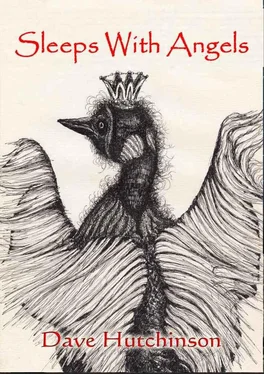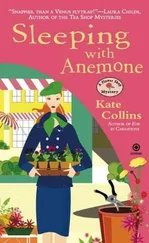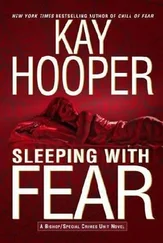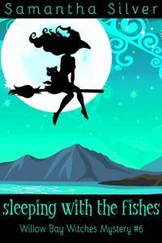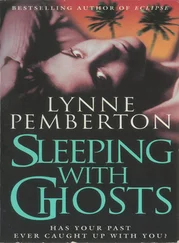The lab Marcin worked in was very well-designed. It was, actually, impossible for someone to infect themselves, by accident or deliberately, without setting off alarms, but you can have the best security system in the world and it’s still only built by people, and nothing built by people is ever perfect.
He got the virus out of the lab by infecting himself, then he took a holiday. In a lock-up garage in Ghent, which he’d kitted out with equipment bought from various medical and scientific supply houses around Europe, he isolated the virus from his blood. Then while he was still contagious, he set off on a five-day tour of Europe’s major airports.
He shook a lot of hands and bought a lot of airport coffee with coins and banknotes liberally smeared with his sweat. He sneezed on a lot of duty-free bottles of perfume and alcohol and squeezed a lot of those fluffy toys you get in airport gift shops and checked a lot of souvenir T-shirts to see if they were his size. I’ve seen some of the security video of him at Heathrow and Schiphol and Orly, and when you look at it all together it’s rather comical, until you remember what he was doing.
He was very sly; he knew a small percentage of infected people would present with flu symptoms, so he timed his five-day excursion so that the symptoms would be lost in the general seasonal flu. In the Southern Hemisphere, outside flu season, they caused brief alarm but nothing more.
Finally, not infectious any more, he returned to Ghent, where he started to manufacture clocks as another way to spread the virus. A member of the Belgian Secret Service said they had no idea how many clocks he’d finally been able to make, but checking back with the suppliers who sold him his raw materials the number could have been in the tens of thousands. By the time they finally caught up with him in Biarritz, it was already too late.
And one thing Marcin said was absolutely right. By the time I had assembled the full story, nobody cared any more. Virtually everyone on Earth had been exposed to the virus.
And by then I was on the road. The trickle of people wanting my opinion of their work, by word of mouth or pheromones or body language or God only knows what else — had become a torrent. I was besieged at home. I was getting letters and emails and phone calls from people all over Europe, promising me unholy riches if I’d only come and see their play or read their book or sit through their operetta.
The only way to stay sane, I thought, was to go to them.
Sometimes, we bump into each other. In Eindhoven or Alençon or Cologne or Madrid or one of the little towns in between. You’ll be sitting in the restaurant of another free hotel, eating another free meal, and you’ll raise your head and there across the dining room you’ll see someone else with weary, haunted eyes from too many hours watching the roads unwind, too many hours spent giving their honest opinion of oil paintings and watercolours and sculptures and happenings and films in too many genres to list properly. And they’ll raise their head too and your eyes will meet, and you’ll nod to each other.
Surprisingly often, that’s as far as it gets. You’ll nod to each other, then go back to your meals, there in the dining room with walls covered with execrable oil paintings done by the manager or the waitress, and you’ll go back to your rooms afterward, and in the morning you’ll tell the manager or the waitress what you think of their paintings. And then you’ll leave, separately, without ever having exchanged a word.
Sometimes, though, we do speak. In Basle I met an English girl named Caroline, who had been a bond trader in London, back in the days before her friends started bringing their drawings into the office and asking her what she thought of them.
Caroline and I travelled together for a while. We drove down into Italy, visited Florence, where she told me about Stendhal Syndrome, a condition which apparently affects visitors to the city, the sheer beauty of the place simply overwhelming them, making them giddy. Neither of us experienced any symptoms, which I thought pretty much said it all.
In Turin, we had an argument over the relative merits of an enormous landscaped garden in the grounds of a villa belonging to a man who was rumoured to be a Capo di tutti capi . He had apparently abandoned his other activities in order to concentrate on his garden. I thought the result was utterly laughable, a fatal collision of styles from ancient Rome to Capability Brown. Caroline was entranced. Later, at our hotel, we argued violently, and the next morning Caroline drove off in a brand-new Mercedes provided by the alleged Capo . I found a Peugeot dealer who was composing enormous, bombastic rock operas. I told him his latest magnum opus was marvellous, and left in a new car. I sometimes check out Caroline’s blog, where she delights in spreading poison and lies about me.
How many are we, those of us lacking the mutation for creativity? More than Marcin thought, but less than you might expect. In Europe there are probably a couple of thousand. Enough to fill a village, say. Around the world, maybe a couple of million. A lot of us blog, although I do not.
It’s not such a bad world, this world of clocks. There is, in truth, much art that is astonishing. Some of it is breathtaking. Generals are writing novels that, before the clocks, would have gone down in literary history. Shopgirls are producing art that challenges Leonardo and Titian and Hirst. In Caen I sat through an oratorio by a ten-year-old schoolboy which had tears running down my cheeks.
As Marcin said, all these works were already there, in a sense, in the minds of their creators. Clocks don’t make someone a great artist; what they do is unlock the impulse , conquer the writer’s block, provide the enthusiasm . They’ve rewritten our genome so that we want to be artists.
We — I should say they — don’t want to be artists to the exclusion of all else. That would be a world out of a nightmare. Everyone carries on with their normal lives and jobs; they just want to spend their free time creating art.
This has had some interesting side-effects. On the whole, people have better things to do with their free time than hating each other or worrying about geopolitics, and warfare around the globe has dwindled away to almost nothing. I say ‘on the whole’ and ‘almost nothing,’ because there is a small civil war going on in the Czech Republic between two groups of Dadaists over an invisibly-fine splitting of hairs about the direction of the movement, and an entirely incomprehensible insurgency in Britain which seems to revolve around the definition of science fiction. That one may be running down; a number of us posted an announcement online to the effect that we would boycott Britain until things calmed down, and calm of a kind appears to be returning. At any rate, it’s been several weeks since there were fatalities.
In odd moments, on autobahns and motorways and autostrada and in the first-class lounges of airliners, I think about Marcin and his brave new world. He said he thought that humanity as a whole was not so bad, that it was only the occasional asshole who gave us a bad name, and now and then, when I’m not listening to someone’s symphony or reviewing a novel or trying to work out whether an hallucinogenically-Turneresque watercolour has actually been hung the right way up, I do wonder whether he hasn’t been largely successful. And if he has, it occurs to me that we, the critics, are the most dangerous people on Earth, because we are not distracted by the imperative to create . If we wanted, we could rule the world. And then it usually occurs to me that we do rule the world, in a way. And yes, it’s very very nice, thanks.
Читать дальше
